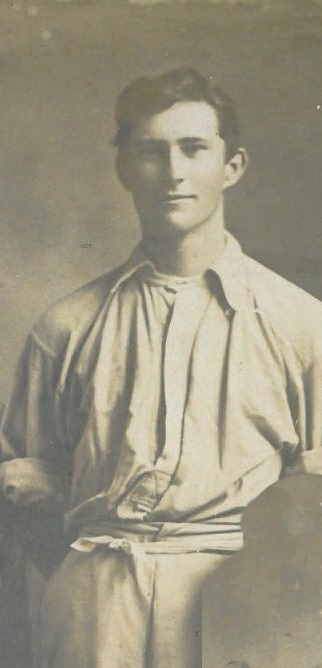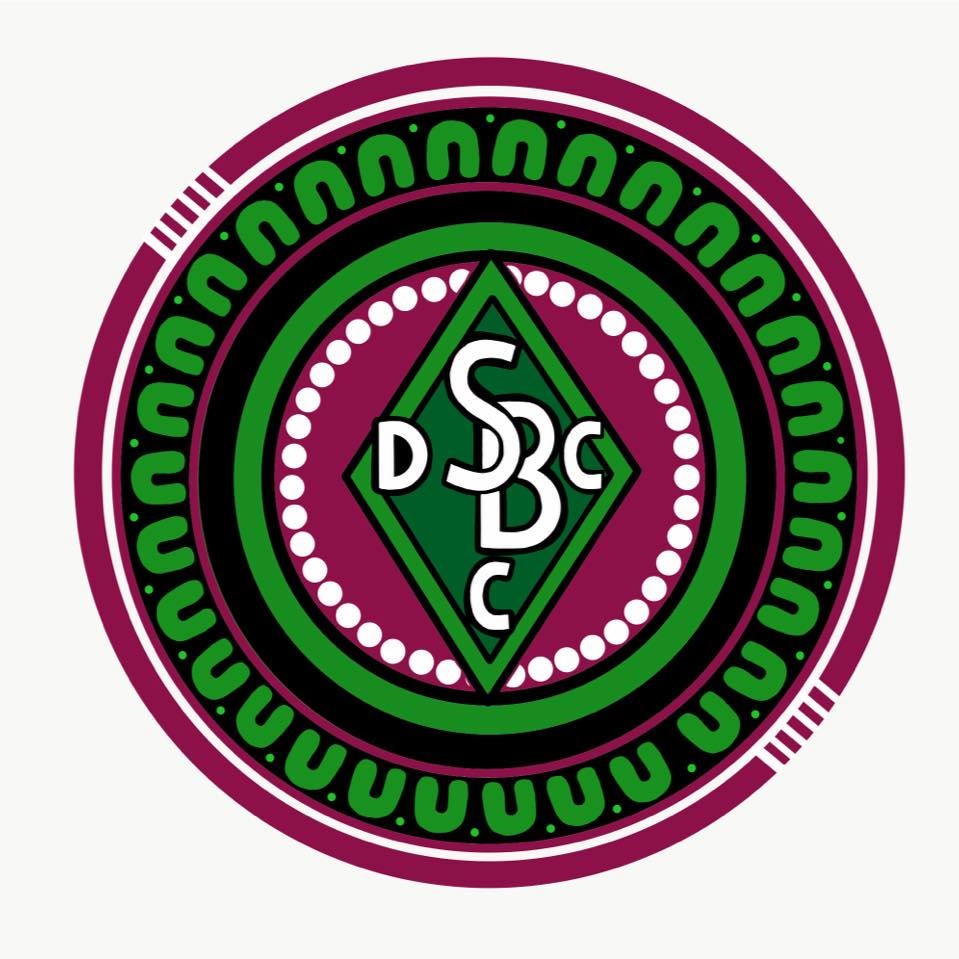Alan Marshal - served with the 15th Battalion in Gallipoli as a Private
South Brisbane District Cricket Club | April 24, 2024

South Brisbane District Cricket Club - A History - 125 years 1897 to 2022 - click to read
Alan MARSHAL
Born – 12/06/1883, Warwick
Enlisted – 19/10/1914 (30 years of Age)
Service number 163
First Grade Number 14
Served with the 15th Battalion in Gallipoli as a Private.
On catching Enteric Fever (Typhoid) Alan was evacuated to Malta where he passed away in the Malta Military Hospital on
23/7/1915.
Buried – Pieta Military Cemetery, Malta, Grave 1, Row B3
Queensland Representative Player
The Club’s first premiership came in 1900-1901 when the Club won the First Grade Premiership.
No doubt the most outstanding player for South Brisbane in the early years was Alan Marshal who in 1904/05 scored 221 runs for South Brisbane against Nundah. This score stood as the highest individual score until it was surpassed by Glenn Trimble who scored 230 n.o. against Wynnum-Manly in 1986-87. He was a tall man, standing at 6ft 3.
Marshal was the son of a Lincolnshire Englishman who had emigrated In 1909, while playing for Surrey, Alan Marshal was included in Wisden’s ‘Five Cricketers of the year’. In 1910 he returned to South Brisbane and played for the club until the outbreak of World War 1. Alan enlisted with the Australian Infantry Force (AIF), 15th Battalion. Marshal was a hard-hitting middle-order batsman and a fast medium bowler who got some spin off the pitch. Alan was a naturally talented cricketer from a young age playing for both South Brisbane State School and Brisbane Grammar School. He started playing grade cricket at age 14, later playing some grade games in Sydney and then for Queensland before heading to England where he made his mark in County Cricket.
Marshal had played just eleven games for Queensland – at that time not part of the Sheffield Shield competition – when 21 he arrived in England in 1905. He proceeded to make more than 2,700 runs in club cricket, principally for W. G. Grace‘s London County Cricket Club, and also played a few first-class matches for amateur teams. In 1906, he did even better: in all cricket, he scored more than 4,300 runs in the season. Qualified by residence to play Championship cricket for Surrey in 1907, he passed 1,000 runs at a respectable average of almost 25 runs per innings.
But in 1908 his career took off: he scored 1,931 runs at an average of more than 40 runs per innings, and his clean hitting – he was particularly strong at driving – made him the sensation of the county cricket season.
Marshal was unable to repeat the success of 1908, however. He scored 1,000 runs again for Surrey in 1909, but at a much-reduced average. He was suspended for some games by the club committee following an incident when Surrey were playing Derbyshire at Chesterfield. The committee did not publicly give the reason for their decision but, according to Jack Hobbs‘ autobiography published in 1935, Marshal and some teammates had been heading and kicking a ball about in the street on their way to their hotel. A police constable asked Marshal for his name. However, he refused to give it, so was taken to the police station. The case was sent tothe Chief Constable, but he dismissed it and it did not reach court.Hobbs himself was not in Chesterfield, as he was playing for England at the time. After a handful of games at the start of the 1910 season, Marshal’s contract was ended. He returned to Australia, where he again appeared in occasional matches for Queensland, but with limited
success.
(Marshal seen replicating the famous Victor Trumper batting picture in Surrey)
His first-class figures were: 119 matches, 198 innings, 13 n.o., 5,177 runs, highest score 176, with an average of 27.98; 114 catches. Bowling: 119 wickets for 2,718 runs, at an average of 22.84.
His best bowling was 7 for 41.
His nephew Alan William Marshall played for South Africa from 1941 – 1956.
He was also Great uncle to Actor, Alan Marshal (1909-1961)
Alan Marshal’s Grave in Pieta Military Cemetary, Malta.
Sunday Mail 2015. First Grade Captain, Emmanuel ‘Lucky’ Peterson appears in a story about Alan Marshal. (Full text below)
A Hero on two fronts - Australia lost men of all kinds on battlefields and in field hospitals – including an unsung sports great.
Alan Marshal was tall, dark and debonair, and when he stares at you out of a sepia-tinted photograph you find yourself staring back. With a face that is somehow strong yet soft, he had the looks to charm the women and a robust life story to impress the men. His gaze is committed and strong. His features suggest he might be more at home on stage than playing cricket, but he
managed to combine both one night in 1908 when he and his Surrey Teammates put on a game 24 of cricket against Middlesex on stage in mid-winter on a 15 yard pitch at the London ColiseumTheatre. It summed up the colourful life of a man who travelled by his own compass.
Marshal’s calling was cricket, yet even the game’s most devoted historians would struggle to remember him. He never earned a Baggy Green. He never played a Sheffield Shield match because his 11 games for his state came before the state was admitted to the competition.
As well as being an impressive medium pace bowler, he was also one of the biggest hitters of his time.
Despite relative anonymity, Private Marshal did something more brave and more honourable than anything possible on a cricket field. He died for his country. In pain. A long way from home. He was just 32.
His life story is one of great fulfilment and adventure yet, ultimately, abject waste.
There was no fanfare for the fallen in the Malta hospital where Marshal dies on July 23, 1915. Suffering from gastro-intestinal diseases, he had been evacuated from Gallipoli, where three weeks later, hundreds of his fellow soldiers were slaughtered.
He is buried with many of his countrymen in Pieta Military Cemetery in Malta. His humble resting place masks a story of rich and exotic flavour.
In 1909, Marshal received the greatest honour of his career when named one of the five cricketers of the year by the game’s bible, Wisden.
Yet the same man was happy to be captain, secretary, treasurer and ground keeper for the Cliftons, a semi-social team in Brisbane. Born in Warwick and educated for a time at Brisbane Grammar School, Marshal learnt the finer points of the game playing brothers Marcus and Isby in the front yard of his home in Gladstone Rd, Highgate Hill.
A Brisbane’s Souths he stood tall as the club’s best player in their early years, delivering the club their first premiership in 1900-01 and later scoring 221 against Nundah, an inning that remained a club record for 84 years. His career was filled with quirks. When he first made his way to London, he played in the club team of the game’s pioneer, W.G. Grace. When he decided to sail home to Australia for good on September 12, 1910, Marshal squeezed in one last game on the day before he left and struck 259 for the Whitcomb Wanderers against the W. Jones XI including 13 sixes. Marshal never quite achieved the success tipped for him, but he still left a mark.
He is one of 62,000 Australian’s who lost their lives in the First World War and whose names flash up on the façade of the Hall of Memory at the Australian War Memorial in Canberra.
Each name will appear for about 30 seconds about 30 times, between August 2014 and November 11, 2018.
It is the very least Australia can do.
By Robert ‘Crash’ Craddock, Sunday Mail, 2015. (© News Limited Australia)








